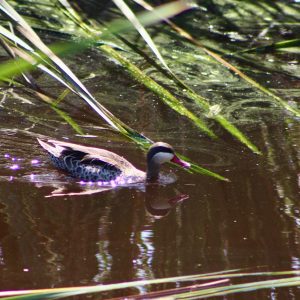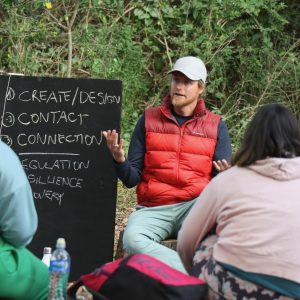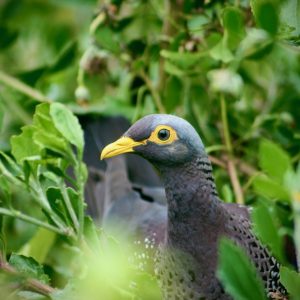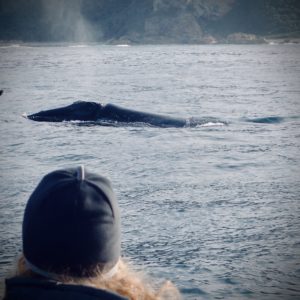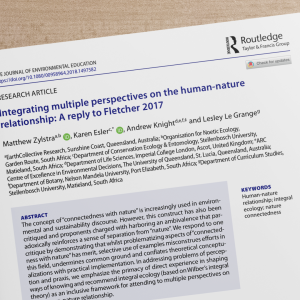Research
eyes4earth.org communicates and furthers PhD research completed by Matthew Zylstra in 2014 through Stellenbosch University’s Transdisciplinary Doctoral Programme in Sustainability. This programme is guided by the progressive philosophy of “Science for Sustainability with Society” and supports collaborative ways of knowing and doing.
eyes4earth.org aims to disseminate findings from this PhD dissertation11 in a more digestible bite-sized format. We will also expand and extend key themes arising out of this work by offering new insights based on follow-up research and experiences. We consider this all part of a commitment to transdisciplinary research and sustainability science.
The objective of scientific endeavor in this new context may well be to enhance the process of the social resolution of the problem, including participation and mutual learning among stakeholders, rather than a definitive ‘solution’ or technological implementation. This is an important change in the relation between the problem identification and the prospects of science-based solutions. ~ (Funtowicz et al. 1998: 1042)
Transdisciplinary Research
 Transdisciplinarity acknowledges that one academic or disciplinary mode of research is ill-equipped to understand, let alone address, the complex challenges facing present-day society and given the diversity of perspectives involved3 9. Instead, it encourages shared learning processes that involve society and allow for problems to be defined, researched and solved independently of any single (scientific) discipline6. Scientific ‘progress’ is therefore redefined by the new ways it opens up through integrated and participatory approaches to provide useful options, interventions and, ultimately, solutions for society3
Transdisciplinarity acknowledges that one academic or disciplinary mode of research is ill-equipped to understand, let alone address, the complex challenges facing present-day society and given the diversity of perspectives involved3 9. Instead, it encourages shared learning processes that involve society and allow for problems to be defined, researched and solved independently of any single (scientific) discipline6. Scientific ‘progress’ is therefore redefined by the new ways it opens up through integrated and participatory approaches to provide useful options, interventions and, ultimately, solutions for society3
Another important trait of transdisciplinary research is that it complements traditional scientific criteria for ‘objectivity’ (in e.g. the natural sciences) with the subjective and normative domains in which societal worldviews, values and ethics are expressed3 5. In bridging these divides, the relevance and ability for science to address social-ecological problems is enhanced through the likelihood that the research (the ‘knowing’) will be effectively used in implementation (the ‘doing’)4. Transdisciplinary approaches are therefore vital to sustainability science1.
In adopting a transdisciplinary approach, the philosophy behind research featured on eyes4earth.org recognizes shifting understandings of the:
- Subject-object relationship and thus the human relationship with the natural world;
- Complexity of societal problems and the inability to solve these at the speed required through mono-disciplinary approaches, or even through science alone;
- Need to engage and empower diverse stakeholders through participatory approaches;
- Role of science in a pluralistic society of contested norms, values and beliefs; and the
- Role of education in adequately preparing learners in a rapidly changing society characterized by increasing integration, collaboration and creativity.
Transdisciplinary research moves outside of disciplinary thinking and therefore becomes more than the sum of its underlying disciplines. This resonates with Arne Naess’ idea of a ‘total view’ – a response to social and ecological crises that goes beyond relying upon (technical) forms of knowledge in specialized Western disciplines and instead recognizes the values, motives and possibilities infusing personal, social and cultural contexts7.
Transdisciplinary research recognizes that the laws of a given reality are not sufficient to describe the totality of the phenomena occurring in that reality, but that the different levels of reality are accessible to human knowledge through different levels of perception5 8. This is an alternate yet complementary way of seeing the world – a view that is more systemic, holistic and fosters understanding as opposed to simply focusing on the production of knowledge. It is a view which is supported by three fundamental characteristics of ‘transdisciplinary attitude’: rigour; openness and tolerance8.
This task calls upon the researcher to open to multiple perspectives on reality, multiple actors within reality and an appreciation that they may all provide some truth or part solution to the bigger question at hand. In this regard, it is necessary to employ frameworks and methods which attempt to overcome – or at least address – epistemological and ethical conflicts, high levels of uncertainty, diverse perceptions and the growing sense of urgency that ‘something needs to be done’10. This means finding ways to make sense of multiple types of information and to synthesize it into a narrative which can be used as a basis for decision-making and action10.
Citation: Zylstra, M.J. 2014. “Transdisciplinarity” (Edited extract) In: Exploring meaningful nature experience, connectedness with nature and the revitalization of transformative education for sustainability. PhD dissertation, Stellenbosch University. Download »
References


